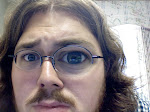
So a friend and I were in a conversation about Christology, which is just the fancy word for theology about the person (how human\divine stuff works out) and the work (what was accomplished in Christ). I promised I would attempt to write a few blog entries that are not completely useless and hopefully helpful, so here is part one and more or less where we spent the most of our time talking. Of course this is just my opinion, so don't get upset if you don't like it. I'm not sure i always do.
The Gospels are an important source for theology, but for Christology there can be no other more important source. While the Gospels are the substance for historical retrieval, they cannot be understood as direct historical accounts or “remembered history” because the Gospels are the result of the early church’s communal remembering, retelling, and reflection on the history of Jesus. The Gospels are not narratives that could have been written by a biographer of Jesus or even by Peter directly after Pentecost. The Gospels can best be understood as “Theological history,” in that the Gospel narratives tell the story of the historical man from Nazareth written from a post-Easter perspective. After the cross and resurrection the identity of Jesus, as Son of God, that existed throughout his life became clear. The historical act of identification for Jesus the Son of God led to the theologizing of the history of Jesus so, as my theology prof likes to say, “all the stories of Jesus have been washed in the blood of his cross and polished in the light of the empty tomb.” Said another way, after Easter the history of Jesus was retold in a way that (re)shaped the stories in light of the resurrection identity of Jesus. So Jesus had a gospel-effect on the (re)telling of the Gospel narratives. The history of Jesus that was retold in the Gospels is different than the gospel itself who is Jesus. To tell the stories of Jesus from an Easter perspective with a gospel-effect was not an underhanded act of the evangelists, but a means to effectively present both the history and truth of Jesus in the single narrative. If the Gospels are taken as history and their Easter perspective is not acknowledged, what was a life full of contingencies is presented to the reader as the divinely ordained plan of God. Therefore, the history of Jesus must be acknowledged as separate and deviating from the theologized Gospel accounts. Recognizing this allows one to seek the historical Jesus contained beneath the imaginative constructs of the Gospel texts and engage Christology from below.
Christology from below is not an inappropriate starting point for Christology because it is the very place the earliest disciples pursued Christological thought. The history a Christology from below seeks and begins from is the history behind the stories that served as the substance of the early disciple’s Christology. That last bit in italics I think is stated too strong, because it's not like we have much to go on outside of the actual canonical Gospels. The point I am going for is just that the actual person of Jesus who lived is the foundation of the faith and Christology. The Gospel texts are foundational theological reflections about the person.








